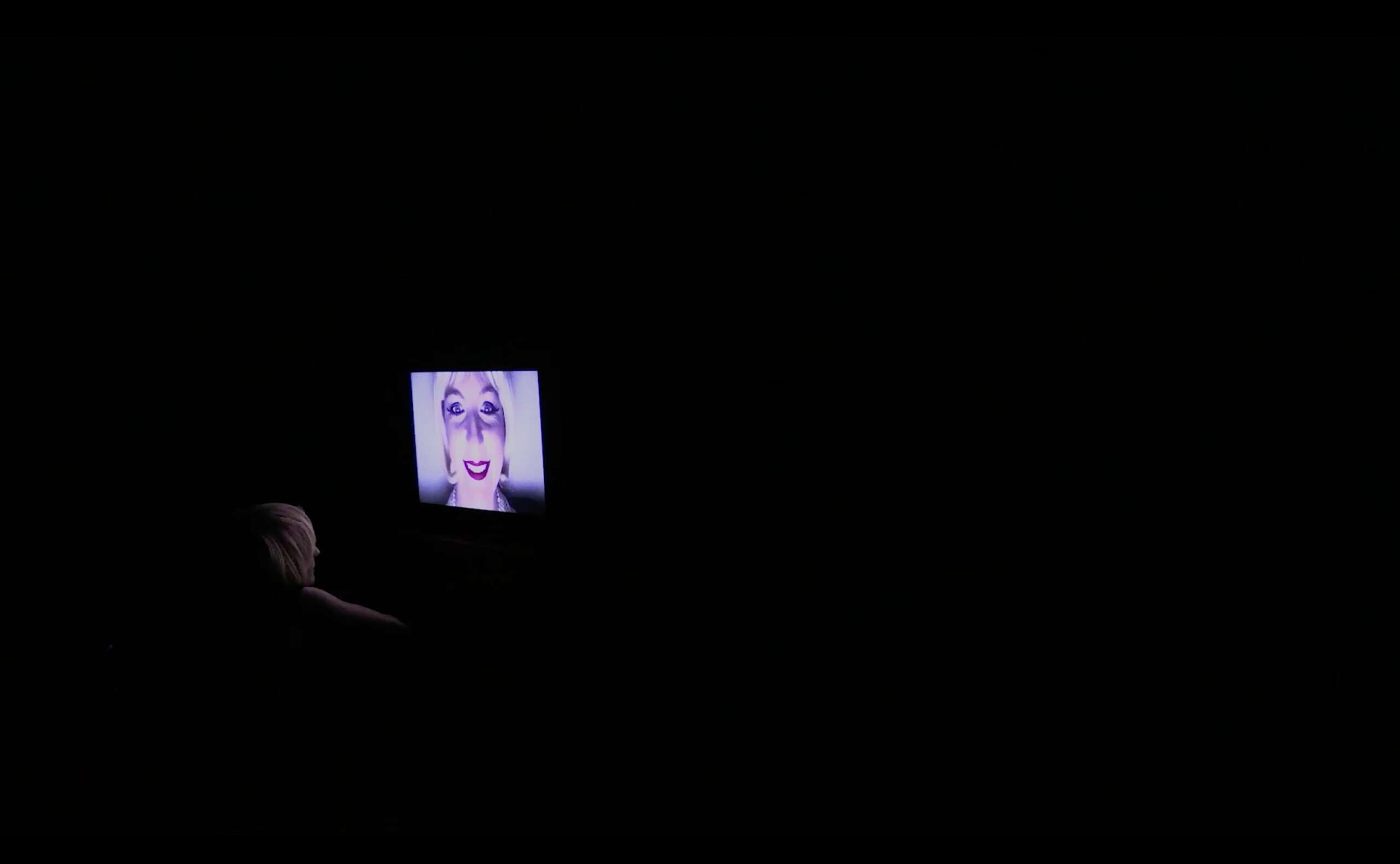We caught up with the brilliant and insightful Jack Herscowitz a few weeks ago and have shared our conversation below.
Jack, looking forward to hearing all of your stories today. We’d love to hear about a project that you’ve worked on that’s meant a lot to you.
As a part of my MFA recital at CalArts, I wrote the piece “Television Dream Star” for soprano, electronics, staging, video, and lighting. The work follows a surreal narrative conversation between a disembodied voice and the performer, soprano Abigail Whitman. Abigail performs the piece in complete darkness and the lighting emanates from a TV pointed away from the audience. Usually, I plan out my compositions in detail before writing, but here, I decided to through-compose the piece without a premeditated form. In a way, this spontaneous approach allowed the “story” to surprise me as I wrote it. It’s just more fun to work this way sometimes!
This work was written specifically for Abigail’s strengths as a performer: in fact, so many narrative and performative details are so specific to their idiosyncrasies, that we’ve decided that the piece is for her only, no one else. As composers, we are often taught to create work to be performed by as many people as possible. But, I think that can often work against what a specific piece needs; performance artists and dancers make site and situation specific work so often, so why can’t we also do that as musicians? Working as individuals is a beautiful thing to really help situate the work in a time, place, and musical culture. I won’t spoil too much more, but you can check out a recording of the piece on my YouTube channel. Since the premiere, Abigail has performed the work at Automata Theater for the Dog Star Orchestra Festival and will perform it again at Oracle Egg June 2024 in DTLA.



Great, appreciate you sharing that with us. Before we ask you to share more of your insights, can you take a moment to introduce yourself and how you got to where you are today to our readers.
I am a composer, improviser, and sound artist living in Los Angeles. My work spans music for chamber ensembles, free improvisation with electronics, theatrical performance pieces, interactive installations, noise music, sample-based remixes, and performance scores. Generally speaking, my practice fits under the wide umbrella of experimental music. My music varies quite a bit in terms of substance, but recent projects have engaged non-positivist tuning systems, processed-based pieces dealing with gradual change, the extremities of noise, amateurism, object performance, silence as tension, repetition as difference, the rhythm of speech, and theatrical (operatic?) pieces. To me, art is most impactful in its ability to allow us to imagine and realize futures outside of our present dystopias and bring our attention to the situations in which we find ourselves. Art makes a new world possible.



For you, what’s the most rewarding aspect of being a creative?
Working with others is easily the most gratifying yet terrifying part of making music. It forces me to let go of my own inclinations towards control and learn to go somewhere else that I could have never gone on my own. Going with the creative flow is not easy for me, but I keep coming back to collaborative work as a means of coaxing myself away from my artistic vice: my spurts of anxiety-induced authoritarianism.
How can we best help foster a strong, supportive environment for artists and creatives?
We need to recognize art as intrinsically valuable rather than only value for its economic output or other byproducts. I am tired of the need for music education organizations to justify their existence by advertising music as a means of achieving higher test scores. This is a fast track to asinine vapid uninspired work. Art making is an inherently valuable pursuit in and of itself! The beauty and mystery of art is that its impact is unmeasurable, yet essential. Recognizing and upholding that truth is an essential step towards greater funding and support for artists/art educators and the questioning of supposedly “objective” and “measurable” positivist value systems. We like to measure impact based on profit. But my life has been more impacted by dozens of basement shows where the performers collectively lost a couple hundred dollars than any major label release in my lifetime. I’m sure many many others could say the same.
Contact Info:
- Website: jackherscowitz.com
- Instagram: @jackherscowitz
- Youtube: https://www.youtube.com/@jackherscowitz4987/featured
- Other: Soundcloud: https://soundcloud.com/jack-herscowitz Vimeo: https://vimeo.com/jackherscowitz
Image Credits
Image Credits: Simone Maura, Maria Ramirez-Adams, Rachel Lambright, M A Harms, Gonzalo T. Alonso


